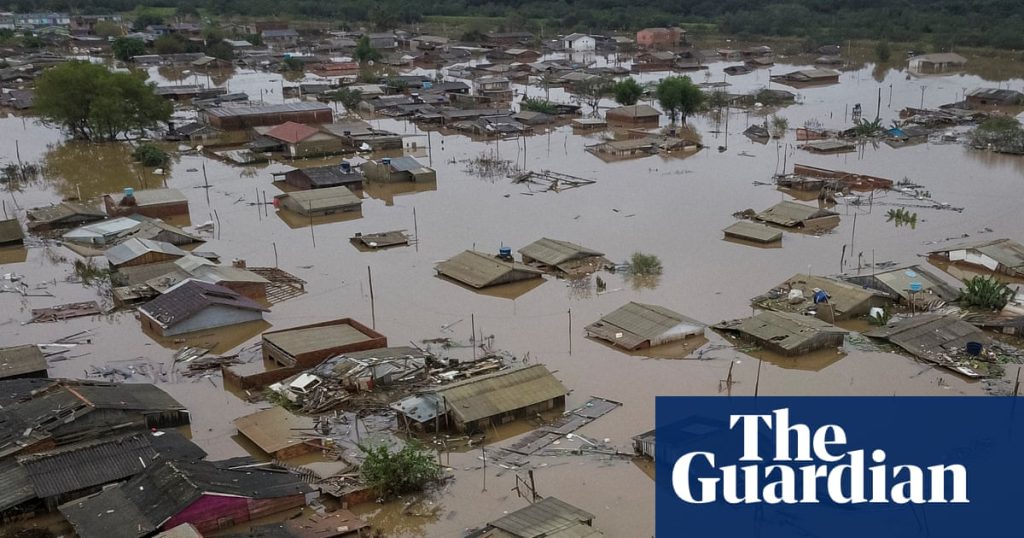Climate-related disasters forcibly displaced 250 million people globally over the past decade, the equivalent of 70,000 people every day, according to a report by the UN refugee agency (UNHCR).
Floods, storms, drought and extreme heat are among the weather conditions driving conflict and displacement, alongside slow-onset disasters such as desertification, rising sea levels and ecosystem destruction, which are threatening food and water security.
In mid-2025, 117 million people were displaced by war, violence and persecution – a dire human rights crisis that the climate emergency is rapidly intensifying.
The UNHCR said the climate crisis was a “risk multiplier” that exposed and compounded existing inequalities and injustices, including the impact of conflict, violence and forced displacement within and across borders.
The number of countries reporting both conflict and disaster-related displacement has tripled since 2009, according to No Escape II: The Way Forward, the UNHCR’s second big report on the impacts of climate refugees released Monday. Yet fragile and conflict-affected countries hosting refugees receive only a quarter of the climate finance they need.
Refugees and displaced people, often living in precarious physical and political conditions, are among the hardest hit by the climate crisis despite contributing little to its causes.
In May 2024, catastrophic flooding in the Brazilian state of Rio Grande do Sul killed 181 people, causing billions of dollars of damage. The floods displaced 580,000 people, including 43,000 vulnerable refugees from Venezuela, Haiti and Cuba, who were living in some of the most flood-affected areas in the region, according to UNHCR.
A year earlier, Cyclone Mocha – the most destructive storm to hit Myanmar in years – made landfall in Rakhine state where 160,000 ethnic Rohingya have been living in overcrowded camps since 2012.
“We had very little to begin with,” Ma Phyu Ma, 37, an internally displaced Rohingya told UN researchers. “The hut was our shelter. The boat and nets allowed us to fish. The clothes were my source of income. It is painful for me to lose everything.”
In 2024, a third of all emergencies declared by UNHCR involved floods, drought, wildfires and other extreme weather events affecting people displaced by war.
Three-quarters of refugees and other displaced people now live in countries facing high or extreme exposure to climate-related hazards, with repeated displacement becoming increasingly common.
Chad, one of the most politically fragile and climate-vulnerable countries, hosts more than 1.4 million refugees and asylum seekers. In 2024 alone, floods forced more than 1.3 million people to flee their homes and camps – more than the previous 15 years combined. Refugees from war-torn Sudan receive less than 10 litres of water a day – far below emergency standards.
Almost half the world’s displaced people are facing conflict and climate impacts in politically fragile states, including Sudan, Syria, Haiti, the Democratic Republic of the Congo, Lebanon, Myanmar and Yemen. These countries contribute negligibly to global greenhouse gas emissions yet have limited access to climate finance and solutions needed to adapt.
Without radical action to curtail climate catastrophe and help poor countries adapt, the situation is likely to get much worse, the report warns.
By 2050, the hottest refugee camps could face nearly 200 days of dangerous heat stress per year, with serious risks to health and survival, with many locations becoming uninhabitable.
The UNHRC is calling on climate negotiators at Cop30 in Brazil to pay attention to this largely ignored and rapidly growing population.
Filippo Grandi, the UN high commissioner for refugees, said: “Funding cuts are severely limiting our ability to protect refugees and displaced families from the effects of extreme weather. If we want stability, we must invest where people are most at risk. To prevent further displacement, climate financing needs to reach the communities already living on the edge.
“They cannot be left alone. This Cop must deliver real action, not empty promises.”

